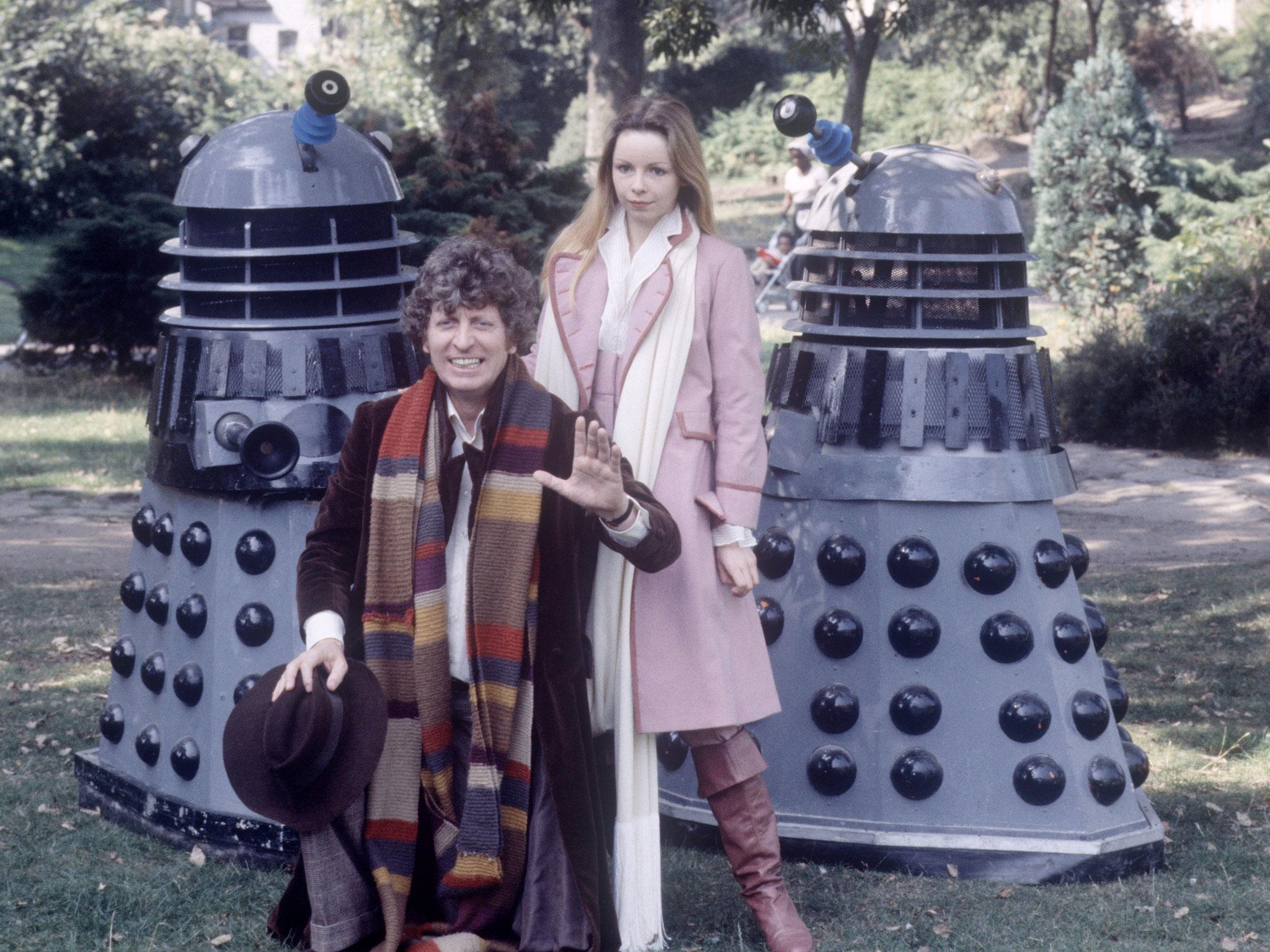Doctor Who: The Drosten's Curse by AL Kennedy, book review
The nation's favourite Time Lord is given a literary twist by AL Kennedy

This is quite a conundrum of a book. Ought one approach it as an AL Kennedy novel which just happens to have the fourth incarnation of the Doctor as its central character, or as a Doctor Who novel which just happens to have been written by the Costa Award winning Kennedy, twice selected as one of Granta's Best of Young British Novelists?
It is genuinely both, like the duck-rabbit trompe l'oeil. I suspect it might make more Doctor Who fans read A Kennedy than Kennedy fans read Doctor Who novels – though they might start with Steven Hall's excellent audio-drama, A Death In The Family, a kind of Doctor Who as if rewritten by Italo Calvino.
Kennedy sketches Tom Baker's Doctor with clear affection: "He appeared to have been dressed by a committee, possibly a drunk committee." Encountering disgruntled receptionist Bryony Mailer in the Fetch Brothers Golf Spa Hotel in Arbroath, he seems "like a wonderful relative she'd heard a lot about but never met".
The hi-jinks that then unfold highlight Kennedy's acerbic wit and flinty belief in humanity's capacity for kindness. Beneath the golf course is a dormant, vastly powerful, psychic weapon, which is beginning to wake up. It gives Kennedy the opportunity to describe heightened emotional states, as the creature amplifies every resentment, seething slight and gripe in small town Scotland. It almost feels like an ongoing bedtime story taking a frolic of its own.
Kennedy brings in an octogenarian obsessed with octopuses (or octopodes), eerie twins, a bunker that takes on a life of its own, Pictish stones, an incompetent alien bounty hunter with no great enthusiasm for his job, badgers and the fact that a petulant American brat might be the greatest threat to all existence.
Kennedy is clearly a Whovian: there are cameos for Davros and the Wirrn, the Cloister Bell and artron energy (no Sonic Screwdriver, that aggravating deus ex machina, thankfully). It has the madcap, satirical feel of stories from the period such as The Ribos Operation or The Sun Makers. Given the current propensity for complex arcs in the show, The Drosten's Curse harks back to a more innocent, a more fun time.
The descriptions of the psychic effects – reality warping, people scrunched up into full stops – are properly queasy and eerie. Of course, readers of Kennedy's fiction – particularly the story "Saturday Teatime" in the collection What Becomes – would be aware of her affection for the programme. But that affection is principally because of the moral dimension of Doctor Who. What she told in that story is shown in this novel; the idea that intelligence, kindness and bravery might solve problems more than violence.
There are sentences here that are inimitably Kennedy's. The description of someone who "looked something like a three dimensional photograph of himself, snapped at an unfortunate and irate moment" is classic Kennedy. There is even a sly nod to her "literary" readership, In that the first inkling of the alien presence is a taste like metal in the mouth, an image used in Paradise, The Blue Book and Looking for the Possible Dance. Despite the upbeat and sardonic tone, Kennedy manages some beautiful moments of melancholy. Of two alien constructs she writes "they were creatures born of love and need and the psychic manipulation of matter at a sub-atomic level – and although that wasn't quite the usual way to make human children it wasn't that far off it, either". That poignancy could easily have come from any of her short stories.
The Drosten's Curse might be a literary curiosity, but it is as enjoyable and affecting as any other Kennedy novel, and as giddying and adventurous as the best Doctor Who episodes. My only gripe as a Scot – no Zygons, the only properly Scottish monsters.
Join our commenting forum
Join thought-provoking conversations, follow other Independent readers and see their replies
Comments